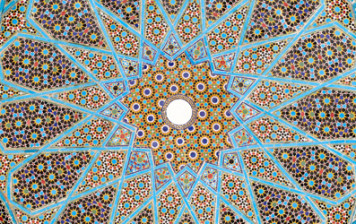
Dr. Ihsan Yilmaz
Fethullah Gülen’s apolitical Islamic understanding is not of course unique neither in Turkey nor in the Muslim World but his both intellectual power & alim credentials and wide influence over the Turkish society as a whole makes him and his influential movement relevant for our discussion.
In Gülen’s view, the faithful can comfortably live in secular environments “(i)f secularity is understood as the state not being founded on religion, hence it does not interfere with religion or religious life; and as the faithful living his religion does not disturb others; and furthermore if the state will accomplish this task in a serious neutrality, then there is no problem” (Armagan & Unal: 108, quoted in Altunoglu 1999: 103). He makes a reference to an Anglo-Saxon understanding of passive secularism and argues that within the boundaries of this type of secularism, Islam and secularity of the state could be compatible (Yilmaz 2000: 5). As for secular law-making, in his view, Islam does not have a problem with it:
In Islam, the legislative and executive institutions have always been allowed to make laws. These are based on the needs and betterment of society and within the frame of general norms of law. On domestic issues in the Islamic community and its relationship with other nations, including economic, political and cultural relations, Muslims have always developed laws. The community members are required to obey the laws that one can identify as “higher principles” as well as laws made by humans. Islam has no objection to undertaking ijtihad (independent reasoning), istinbat (deductive reasoning), and istikhraj (derivation) in the interpretation of Shari’ah principles (Gülen 2005: 450).
Gülen’s views on democracy are well-known. He has been underlining for a long time that “Islam does not propose a certain unchangeable form of government or attempt to shape it. Instead, Islam establishes fundamental principles that orient a government’s general character, leaving it to the people to choose the type and form of government according to time and circumstances” (Gülen 2006: 14). Fundamental principles Islam prescribes, according to Gülen, are social contact and election of a group of people to debate common issues (Gülen 2006: 17). Gülen summarizes the theological reasons why Islam considers that people are responsible for their own fate and thus governance:
Islam considers a society to be composed of conscious individuals equipped with free will and having responsibility toward both themselves and others. Islam goes a step further by adding a cosmic dimension. It sees humanity as the “motor” of history, contrary to fatalistic approaches of some of the nineteenth century Western philosophies of history such as dialectical materialism and historicism. Just as every individual’s will and behavior determine the outcome of his or her life in this world and in the hereafter, a society’s progress or decline is determined by the will, worldview, and lifestyle of its inhabitants. The Koran (13:11) says: “God will not change the state of a people unless they change themselves [with respect to their beliefs, worldview, and lifestyle]. ” In other words, each society holds the reins of its fate in its own hands. The prophetic tradition emphasizes this idea: “You will be ruled according to how you are. ” This is the basic character and spirit of democracy, which does not conflict with any Islamic principle. As Islam holds individuals and societies responsible for their own fate, people must be responsible for governing themselves (Gülen 2006: 16).
Gülen’s understanding of majority rule does not permit a tyranny of majority:
“Members of minority communities should be allowed to live according to their beliefs. If these sorts of legislations are made within the norms of international law and international agreements, Islam will have no objection to any of these. No one can ignore the universal values that the Qur’an and the Sunnah have presented with regard to the rights mentioned above” (Gülen 2005: 451).
Whenever speaking on the issue of democracy, Gülen constantly reminds us that Islam is a religion and thus is more than a political method, system or ideology:
On the issue of Islam and democracy, one should remember that the former is a divine and heavenly religion, while the latter is a form of government developed by humans. The main purposes of religion are faith (iman), servanthood to God (“ubudiyyah), knowledge of God (ma“rifah), and beautiful actions (ihsan). The Qur’an, in its hundreds of verses, invites people to the faith and worship of the True (al-Haqq). It also asks people to deepen their servanthood to God in a way that they may gain the consciousness of ihsan. “To believe and do good deeds,” is among the subjects that Qur’an emphatically stresses. It also frequently reminds people that they must develop a conscious relationship with God and act as if they see God, or as if they are seen by God (Gülen 2005: 451-452).
Source: Yilmaz, Ihsan. 2011. “Beyond Post-Islamism: Transformation of Turkish Islamism Toward ‘Civil Islam’ and Its Potential Influence in the Muslim World,” European Journal of Economic and Political Studies, Vol. 4, No. 1, pp. 258-59.
References: Please refer to the original article for references in this abstract.
Related Video:
Fethullah Gülen: No return from democracy – Remarks in 1994 and in 2016.
Tags: Civil Islam | Democracy | Fethullah Gulen | Islamic State | Islamism | Political Islam | Secularism |Related Articles

What you should know about Hizmet
There are three things non-Muslim Poconovians should know about Gülen’s movement. First, Gülen rejects a jihad of violence as promoted by the Taliban, Al-Qaeda and ISIS in the…

Fethullah Gülen’s Response to the “Clash of Civilizations” Thesis
The differences between Huntington and Gülen are stark. Where Huntington thinks in terms of polarities, Islam or the West in conflict with one another, Gülen opts for a…

Gülen’s Rethinking of Islamic Pattern and Its Socio-Political Effects
Fabio Vicini Over recent decades Islamic traditions have emerged in new forms in different parts of the Muslim world, interacting differently with secular and neo-liberal patterns of thought…
